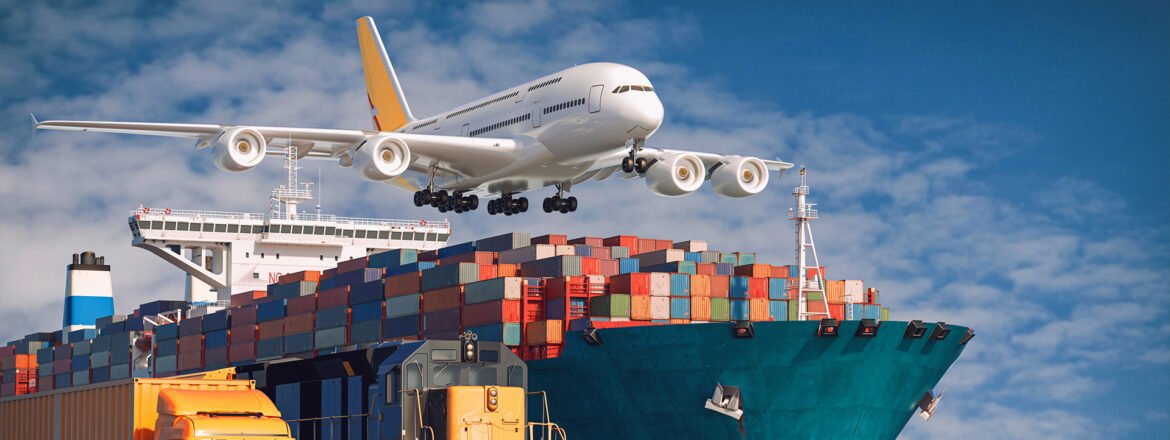


Air Transport
is a mode of transportation that utilizes airplanes to move cargo or passengers quickly and efficiently over long distances. It is widely used for both domestic and international travel due to its speed and ability to cover vast distances. Here’s a comprehensive overview:
- Types of Air Transport:
- Passenger Flights: Commercial airlines operate passenger flights that transport individuals and their luggage between cities and countries.
- Cargo Flights: Dedicated cargo airlines or freight divisions of passenger airlines handle the transportation of goods, including express shipments, perishable items, and large cargo.
- Advantages of Air Transport:
- Speed: Air transport is the fastest mode of transportation, significantly reducing transit times compared to road or sea transport.
- Global Reach: Capable of connecting almost any location worldwide through a network of airports and airlines.
- Reliability: Generally offers high reliability and punctuality with scheduled flights and fewer disruptions compared to other modes of transport.
- Security: Enhanced security measures at airports and during transit help protect both passengers and cargo.
- Key Components:
- Airports: Infrastructure that includes runways, terminals, and customs facilities. Airports serve as the hubs where goods and passengers are loaded and unloaded.
- Aircraft: Various types of aircraft are used, including passenger jets, cargo planes, and specialized aircraft for certain types of cargo.
- Airlines: Companies that operate flights, including both passenger and cargo carriers. They manage flight schedules, bookings, and logistics.
- Logistics and Operations:
- Booking and Scheduling: Air transport involves booking cargo space or passenger tickets in advance, with schedules that dictate flight times and routes.
- Handling: Efficient handling of cargo at airports includes loading, unloading, and transferring shipments to and from aircraft. Specialized handling is required for sensitive or high-value items.
- Customs Clearance: For international shipments, customs procedures must be followed, including documentation and inspections to comply with import/export regulations.
- Cargo Services:
- Express Services: Fast delivery options for urgent shipments, often with guaranteed delivery times.
- Freight Forwarding: Services provided by freight forwarders to manage logistics, documentation, and transportation for cargo shipments.
- Specialized Cargo: Handling of specific types of cargo such as hazardous materials, perishables, or oversized items, often requiring special equipment or conditions.
- Regulations and Compliance:
- International Agreements: Compliance with international aviation agreements and regulations, such as those set by the International Air Transport Association (IATA) and the International Civil Aviation Organization (ICAO).
- Safety Standards: Adherence to strict safety and security protocols for both aircraft and cargo to ensure safe operations and minimize risks.
- Cost Considerations:
- Pricing: Air transport is generally more expensive than other modes due to fuel costs, aircraft maintenance, and operational expenses. Pricing varies based on factors like distance, weight, and urgency.
- Cost Efficiency: Despite higher costs, air transport can be cost-effective for high-value or time-sensitive items where speed is critical.
- Environmental Impact:
- Emissions: Air transport contributes to greenhouse gas emissions, and efforts are being made to improve fuel efficiency and develop sustainable aviation technologies.
- Mitigation: Airlines and aviation authorities are investing in cleaner technologies, such as more fuel-efficient aircraft and alternative fuels, to reduce the environmental footprint.
- Future Trends:
- Technological Advancements: Innovations in aircraft design, fuel efficiency, and logistics technology are shaping the future of air transport.
- Increased Automation: Adoption of automation in cargo handling and operational processes is enhancing efficiency and reducing turnaround times.
- Customer Experience:
- Service Quality: Providing excellent customer service, including reliable tracking, timely updates, and responsive support, enhances the overall experience for passengers and shippers alike.
- Convenience: Streamlined booking processes, efficient check-in, and flexible flight options contribute to a positive customer experience.

